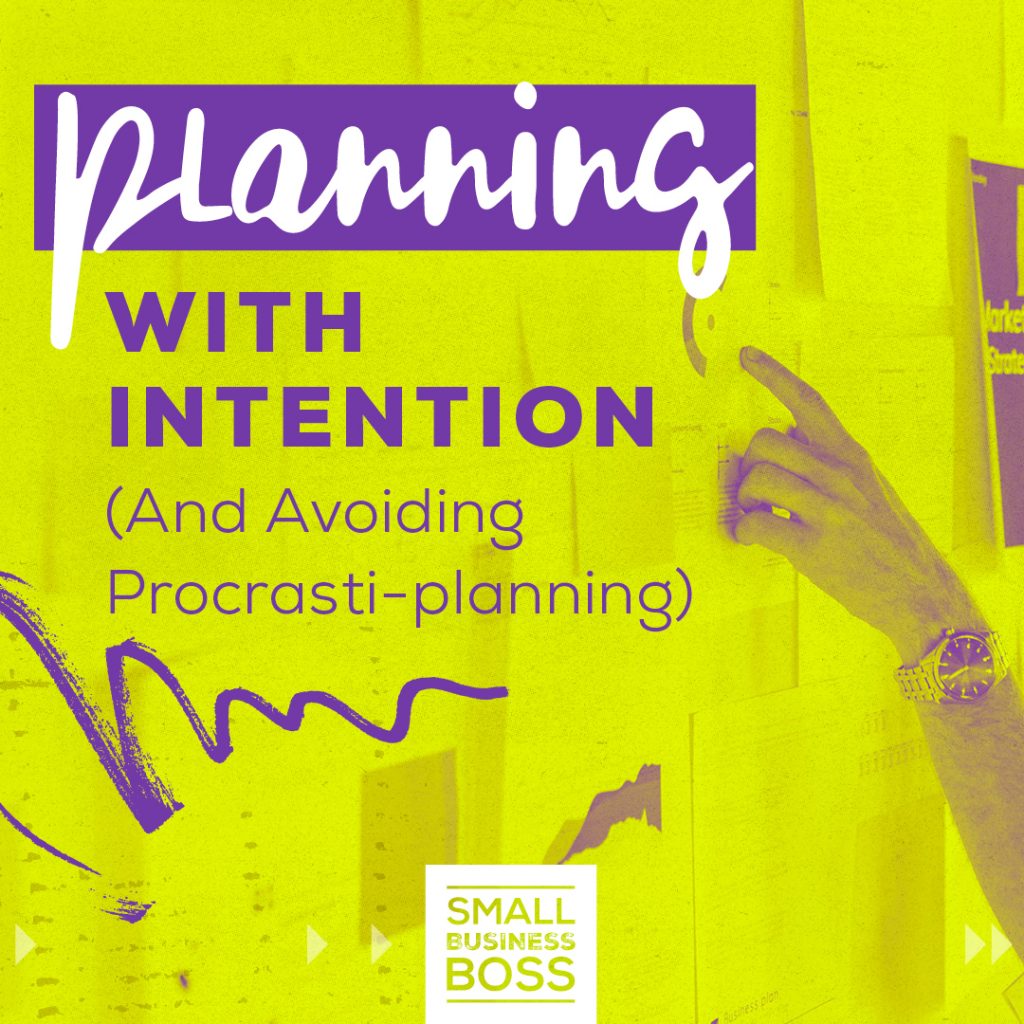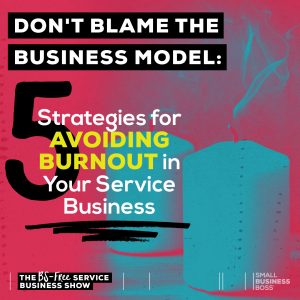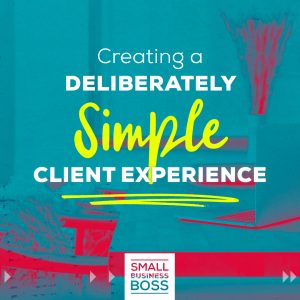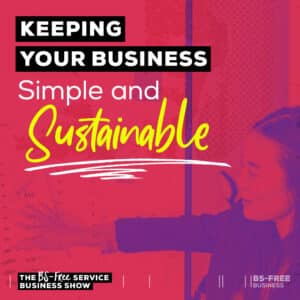
Search the site:
Episode 194: Planning with Intention (And Avoiding Procrasti-planning)
Happy December, bosses! And the end of the year means one thing when you run a business: The planning frenzy has begun. In this episode, we’re getting real about planning, how to plan with intention, and avoid falling into the trap of procrasti-planning.
There’s no denying that as 2019 draws to a close, there’s a certain magic that comes with the idea of starting a new decade. And while planning is an absolute necessity when you run a business, it’s become an obsession in the online business world.
Yes, I said obsession. And much of that obsession is fueled by the commoditization of planning as a business.
Planning is a building block of business (as is learning how to make money), so it’s something a lot of people turn into a service or course. The problem being that many of these people have zero actual experience running a business, and they see planning as a way to get you to open your wallet. They’re teaching you regurgitated theory that may or may not work for your situation.
(And, yes, this pisses me off. I’m so sick of people focusing on making more money and planning as the low hanging fruit in this industry as they tend to be things people will pay for.)
So, beware of the planning gurus because they’re selling you a dream. No plan can magically make everything in your business fall into line. It’s simply not possible.
I won’t deny that there’s a definite correlation between when I started planning and when my business results began to improve. But what I think we need to watch for is the idea that planning is a magic bullet that will fix fundamental problems in our business. Or that if we invest our time in planning, we’ll get where we want to go.
Do we need to plan and set goals? Absolutely — especially as service business owners, it’s something that is really easy to ignore and just keep on, keeping on doing our client work.
But the flip side is what I call procrasti-planning. When we plan so much that it gets in the way of doing. When we spend all our time dreaming and scheming instead of executing on said plans. And if this is you, I get it. There’s a certain safety that comes with planning, but that plan, bosses, isn’t worth the paper it’s mapped out on if you don’t have follow-through.
So with that, let’s talk about planning with intention. When I’m doing annual plans, I focus on a few core areas, and I avoid the temptation to plan out my complete year. The truth is, things change daily in my business; there’s a constant evolution, and beyond a baseline for the year, planning is a big old waste of time.
My annual planning includes five core elements:
#1. Revenue Projections
While my business isn’t 100% about the money, it does exist to provide me with my livelihood, so revenue projections are part of my annual planning process. I do this for a few reasons. First, if I want to reach a certain revenue goal (or at least work towards it), I need to see how that aligns with my personal goals and intentions for the year, as well as budgets, team, and more.
It’s really easy to pick a revenue number. It’s much harder to look at it critically and analyze it to see what the impact of striving for that number will be. While I’m all for being aspirational and letting things unfold along the way, there’s a point at which aspiration can set us up to fail. (Which for me, is VERY unmotivating.)
For revenue projections, I like to base it on facts. Things like year-over-year growth, managing expenses, and my BFF profitability. In last year’s planning, I realized that for me to pull off a specific revenue goal, I’d have to increase my overall team budget, which would make things less profitable. So I took a different path, with profitability being my key metric over revenue growth, and that’s paid off. (I’ll be sharing more about this in January!)
#2. Annual Budget
Next, I work with my finance person to figure out our annual budget. Julia works up all the numbers and forces me to get incredibly specific about everything we’ll be spending on in the year.
We’re talking planning bonuses, travel budgets, tools, team costs, and more. The first time we did this exercise, truthfully, I hated it. As someone with rebellious tendencies, it felt constricting. But I will tell you that the budget is a big reason 2019 has been so much more profitable than 2018. Shocking, I know, but sticking to the plan and really focusing in on expenses and where we invest money means impulse purchases aren’t a thing, and I keep more of our money.
#3. My Schedule
If you listen regularly to the show, you probably know how fanatical I am about my schedule. How I manage my schedule, and my calendar is essential to my happiness and overall mental health.
I feel like this is particularly important as time is a finite resource. And how we spend that time impacts not only our business but our overall lives.
So for my schedule, I started in the summer paying a lot of attention to how things were making me feel, so I’d have data and observations to use to improve upon my existing schedule.
The theory here is great, but here are a few essentials for 2020:
- Continuing with my on/off call schedule. That means, every other week, I aim not to have calls. I may have a couple of new business or corp clients filtering in, but for the most part, “off” weeks are a blank slate.
- The total number of people served in what’s now the Agency Mastermind has gone from 18 to 10. That means fewer 1:1 calls and more open time on my schedule. The 2019 call schedule was manageable, but I know with some things coming up for 2020, I want more white space in my calendar.
- The last Friday of each month is slated for spending the day with Sara for business and/or fun. We’re calling these our “out of office” days where we’re focusing on working on high-level priorities for the business. We do best face-to-face, and we live close by, so it would be a sin not to take advantage of that.
- More time off. I’ve planned out all of my vacation and travel for the year, and that let me see where there’s room for growth, and where there’s not.
#4. 12 Month Vision
I’ve always had a squishy relationship with vision, so if you struggle with vision, I’m right with you. I’ve done so many different vision exercises over the years, and what’s worked best for me is dealing in six, 12, or 24-month vision.
After that, I literally can’t grasp it beyond theory — especially when two to three years out, I’m dealing with a kid going to college, a husband eligible to retire, and who knows what else. (Plus, I didn’t even know a year ago I was going to move, so you know, I like to keep it a bit loose.)
Right now, I’m in the process of formulating my 12-month vision for the business, and honestly, it’s a lot of “the same” with a focus on making things even simpler. But more to come on how I’m relishing the idea of uncomplicating every single thing I possibly can.
#5. Word of the Year
The word of the year is something people either love or find completely ridiculous. And if it doesn’t work for you — cool. The key is having an anchor for how you want to feel and what you want to happen in the year to come.
For me, the word of the year is a north star when things get challenging, or I’m not clear on what to do. In 2018, my word of the year was “unstoppable.” And the joke was on me because if there was a year that was one trial after another, it was 2018, so my commitment to not letting things stop me was something I needed more than I knew.
And for 2019, it was the word “ready.” I wasn’t quite sure what I was ready for, but it was a way to set up a container for me to expand as a leader and a boss. And every time something came up where I doubted myself or struggled with it, I was able to come back to that. “Ready” was my mantra when raising prices, going after bigger clients, and making decisions on what I wanted to do.
For 2020, I’m still exploring what my word will be, but I have a word I use all the time that brings me back to how I want to feel and show up. to what my friend Tanya Geisler calls “your starring role,” which for me is “sovereign.” I want to feel like the supreme ruler of my life and business, so I make decisions accordingly. I anchor back to that when I feel like things are happening to me or around me out of my control and figure out how I can still feel like I’m sovereign.
If you’re team, “no word of the year,” find something else to anchor you. I’m all for whatever works for you.
With those five things out of the way, I have a solid basis for the year to come and for working on my 12-week plans for each quarter. Planning in smaller increments and having flexibility has helped improve my performance and keeps me from throwing up my hands and deciding nothing is working. I’m able to take my macro-level annual plans and operationalize them at a quarterly, monthly, weekly, and even daily level to move things ahead. (And if you want more of my fave habits and routines, check out episode 146.)
My challenge to you as you think about 2020 is to be intentional with what you should plan now, and avoid falling into the trap of planning as a way to avoid doing actual work or to over-plan everything. When we spend too much time on planning, we’re avoiding doing actual work, and we’re not actually moving our businesses ahead.
And if you’re the type of person who avoids planning, put time on your schedule right now to work on the five areas I shared above. Even getting a budget and your schedule in place can make a critical difference once January 1st rolls around.
Finally, remember, you don’t need anything fancy to do your planning. There are so many free tools, books, and podcasts out there that you don’t need to spend thousands on a course or coach to help you figure it out. Start small, learn the building blocks, and go from there.
Links for the Show:

I’m Maggie Patterson (she/her), and services businesses are my business.
I have 20+ years of experience with client services, am a consultant for agency owners, creatives, and consultants, and vocal advocate for humane business practices rooted in empathy, respect, and trust.
Read or Listen to the Latest
Check Out These Posts
For Solo Business Owners

Growing a solo service business is tough.
It’s even harder when you’re bombarded with BS advice that steers you away from your values and why you started your business in the first place.
This is the podcast for solo creatives and consultants who want to remain as a team of one and have zero interest in the hustle and grind of typical business teachings.
Subscribe now and never miss an episode.
For Micro Agency Owners
Most podcasts for agency owners obsess over revenue growth as the ultimate success metric.

But here’s the truth: not everyone wants to make millions. Your goal might be to build a sustainable business that lets you have a life and doesn’t run you into the ground.
Join me as I spill my shameless confessions and share everything I’ve learned about building a micro agency that skips the BS of tired and typical agency teachings.
Follow Now on All Major Podcast Platforms








